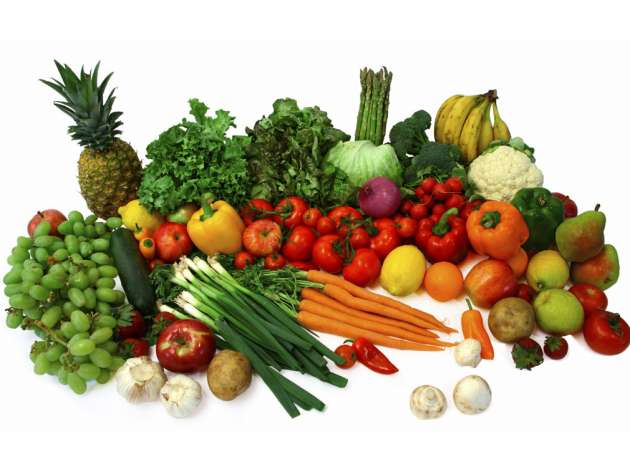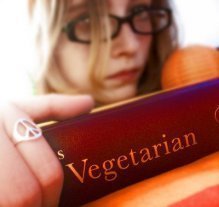For similar reasons, vegetarians and vegans avoid consuming animal products. The most significant distinction is their level of acceptance of animal products.

 What Dr. Bircher-Benner Taught his Patients
What Dr. Bircher-Benner Taught his Patients Have you ever really tried to live for two weeks on only fresh and raw fruits and vegetables and pure water? No coffee, tea, alcohol, chocolate, bread, biscuits, meat. You would be amazed at the difference in how your brain and body feels and responds to fresh, live and raw foods. You would be delighted (probably after you initially detoxify the wastes in your body), and very much re-think your supermarket shopping in the future. Shoppers, everything we do, we need to do to encourage you to eat fresh fruit and vegetables, and how this can save you money in spiraling health care costs!
Have you ever really tried to live for two weeks on only fresh and raw fruits and vegetables and pure water? No coffee, tea, alcohol, chocolate, bread, biscuits, meat. You would be amazed at the difference in how your brain and body feels and responds to fresh, live and raw foods. You would be delighted (probably after you initially detoxify the wastes in your body), and very much re-think your supermarket shopping in the future. Shoppers, everything we do, we need to do to encourage you to eat fresh fruit and vegetables, and how this can save you money in spiraling health care costs!In 1980, the annual cost of health care per person in the US was about 1,300 dollars. It has been estimated to reach 16, 000 dollars per person in 2017! No doubt similar statistics in NZ are likely, after all, Australia and NZ are second in the world to the States in terms of obesity and chronic ill health. By 2020, 99.95% of all foods consumed will most likely be refined or processed in some way, and cancer will be the leading cause of death world-wide. Perhaps it is time to go back to Bircher-Benner’s day, time to rethink what we are doing in the kitchen and putting in our shopping trolley each week.
 A “Vegetarian” is a person defined as somebody who avoids all animal meats. Vegetarians who avoid meat, but do eat animal products such as cheese, milk, and eggs, are called lacto-ovo vegetarians (lacto = milk, cheese, etc;. ovo = egg) The people who totally avoid all animal products (including honey and some folk even all leather goods)
A “Vegetarian” is a person defined as somebody who avoids all animal meats. Vegetarians who avoid meat, but do eat animal products such as cheese, milk, and eggs, are called lacto-ovo vegetarians (lacto = milk, cheese, etc;. ovo = egg) The people who totally avoid all animal products (including honey and some folk even all leather goods)
are referred to as the vegans.
The key to optimal vegetarian health is quite straight forward. Simply include a wide variety of different foods in your diet – no one food source is nutritionally complete by itself. Vegetarians should carefully combine and choose their foods from quality grains, organic vegetables, legumes, nuts, seeds and spray-free fruits. Whole unrefined foods are
best. Free range eggs and dairy are optional, although it would be better to skip the dairy due to the mounting research linking dairy consumption with many conditions such as auto-immune disease and cancer.
Being a vegan means no animal products essentially. Veganism is considered the strictest type of vegetarianism.
Veganism is currently described by the Vegan Society as a style of life that tries to avoid as much as possible all types of animal exploitation and cruelty, including food exploitation and other forms of exploitation of animals.
A vegan diet avoids not just animal meat, but also dairy, eggs, and other animal-derived foods. Gelatin, honey, albumin, whey, casein (cow’s milk in general), and even some forms of vitamin D3 are examples of foods derived from an animal that may be deemed unacceptable.
For similar reasons, vegetarians and vegans avoid consuming animal products. The most significant distinction is their level of acceptance of animal products. Vegans and vegetarians, for example, may both abstain from eating meat for health or environmental grounds. Vegans however also avoid all animal by-products, believing that this has the greatest influence not only on their health, but also and the environment.
In terms of ethics, vegetarians reject the killing of animals for food, but believe animal by-products such as milk and eggs to be acceptable as long as the animals are kept in proper conditions. Vegans, on the other side, think that all animals, whether for food, clothing, science, or entertainment, have the right to be free from being used by humans. As a result, they try to stay away from all animal by-products, regardless of how animals are raised or housed. Vegans avoid dairy and eggs because they want to eliminate all types of animal exploitation, foods that many vegetarians don’t necessarily mind eating.
Research indicates that an assortment of plant foods eaten over the course of a day can provide all essential amino acids. Most people can easily meet their protein needs by eating a variety of whole grains, legumes, and vegetables on a daily basis. Vegetarian foods high in protein: Tofu, tempeh, beans, almonds, adzuki, soy, baked & lima beans, seeds, soy milk, eggs, and cheese.
About 30% of women are iron deficient. The richest plant sources of iron are dark green vegetables, molasses, brewer’s yeast, pumpkin & sesame seeds, fermented soy products and legumes, whole grains, dried fruits, and nuts. Food high in vitamin C, such as fruits and greens, enhances iron absorption. Foods that can reduce iron absorption include: tea, coffee, milk, cheese, spinach, rhubarb, Swiss chard and chocolate.
Dairy products are high in calcium, but the calcium in plant foods is generally better absorbed than the calcium in cow’s milk. Rich sources of calcium include dark green vegetables such as broccoli (two cups of broccoli contains 300mg of calcium, the same as a glass of cow’s milk), and bok choy, kale, beans, tofu (made with calcium),
tahini, sesame seeds, almonds, figs, seaweeds, and fortified soy milk. Since the consumption of meat increases calcium requirement (as well as induces osteoporosis), a person following a vegetarian diet may have much lower calcium needs although some plant foods contain oxalates and phytates which can inhibit calcium absorption.
Vitamin B12 is produced by microorganisms in the soil. In the past, root vegetables contained adequate amounts of B12. Today’s scrubbed vegetables have most traces of B12 removed. Meat-eaters acquire B12 through micro-organisms living in the meats they eat. Most primates get B12 from dirt, insects and faeces containing B12 from bacteria. In our modern sterilised and sanitised yet polluted and toxic world, B12 extracted from bacteria provides the most convenient and reliable source. Lacto-ovo vegetarians receive small amounts of B12 through eggs and dairy. Obtaining enough B12 through a pure vegetarian diet is much more challenging. Cases of sub-clinical B12 deficiency are not rare in NZ. Many patients have been helped off anti-depressants by correcting the B12 deficiency. The human body stores a 2-7 year supply of vitamin B12, and it takes an average of 3 to 5 years for it to become depleted once a person follows strict vegetarianism without supplementing their diet. It’s especially important for women to ensure B12 intake when pregnant or breastfeeding. Best sources of B12: : Organic vegetables, barley or wheat grass, nori, egg yolks, tempeh, and mushrooms have minimal levels of viable B12. Spirulina does contain high levels of B12, yet in a bio unavailable form. It is really best to supplement to keep your levels topped up long term For people who have been diagnosed as B12 deficient the daily dosage needed to restore levels to normal is 1 – 2 mg per day (2mg for one month followed by 1 mg per day). Then a daily multi-vitamin and mineral supplement containing B12 should be an essential part of the diet.
Reference: Dr. Bircher Benner (Zurich Development Centre www.zurich.com)